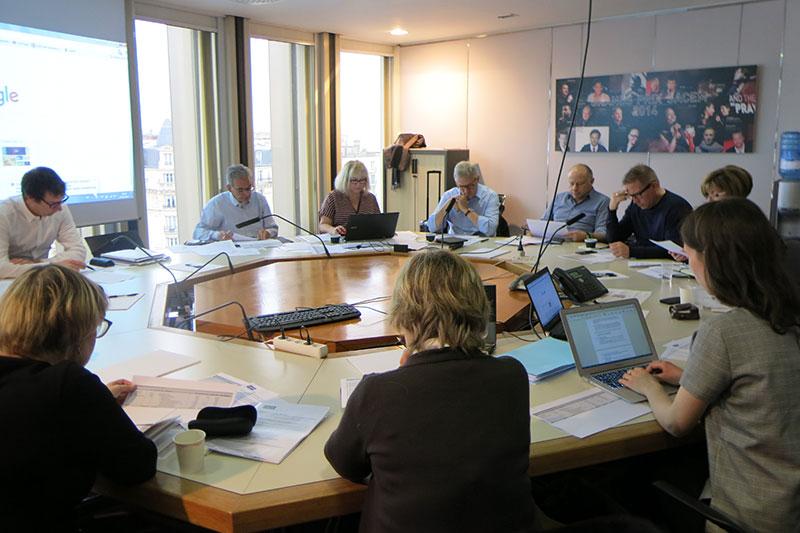
CIAM Meets with Publishing, Label and Artists Organisations to Form “Safe Harbour” Working Group
On February 21, CIAM president Lorenzo Ferrero met with representatives of the Independent Music Publishing Forum (IMPF) to discuss the common ground shared in the battle to protect creators’ rights against safe harbour legislation abuses. The discussion took place alongside the IMPF board meeting in Paris to which Mr. Ferrero was also invited. This was a reciprocation of the invites to the CIAM executive committee meetings in New York and London last year where IMPF had participated to share the performers’ perspective. Also in attendance were representatives from the International Artist Organisation (IAO), the Independent Music Companies Association (IMPALA), the Worldwide Independent Network (WIN) and from the legal and creators’ teams at CISAC.
The meeting began with Adriana Moscoso from the CISAC legal department giving a review of the Confederation’s current initiatives on safe harbour and transfer of value at an international level. In addition to working with WIPO, CISAC has also helped UNESCO to understand the significant impact on cultural diversity that this issue can have; a perspective particularly appreciated by all attendees.
The meeting attendees noted that while their respective organisations may not be 100% on the same page about every aspect, there was certainly enough common grounds to consider working together on the primary common issue of safe harbour and the unfair “transfer of value”. Attendees recognised the importance of changes in political climate and public awareness in encouraging lawmakers to change the digital landscape in favour of those who create the works that are at the centre of it. In this regard, the new copyright legislation in China could be crucial and needs to be closely monitored.
The group also noted that several organisations and coalitions are doing excellent work against this issue on both sides of the Atlantic and saw no need to create another or to interfere. However, some coordination, sharing of information, and perhaps even promoting synchronicity of action might help achieve the common goals more quickly. Additionally, the attendees’ global networks can follow events in the leading Asia-Pacific economies more closely despite them being generally more disconnected from the US-EU axis. Finally, each attendee has a roster of personal relations with politicians and can use informal discussion opportunities to enhance the effect of more formal initiatives such as GESAC’s “Meet the authors”.
The meeting concluded that these points, alongside a general need to harmonise the language, definitions and narratives used globally, warranted more investigation into future collaboration. The decision was taken to create a safe harbour working group to begin this work and start sharing information and best practice.
